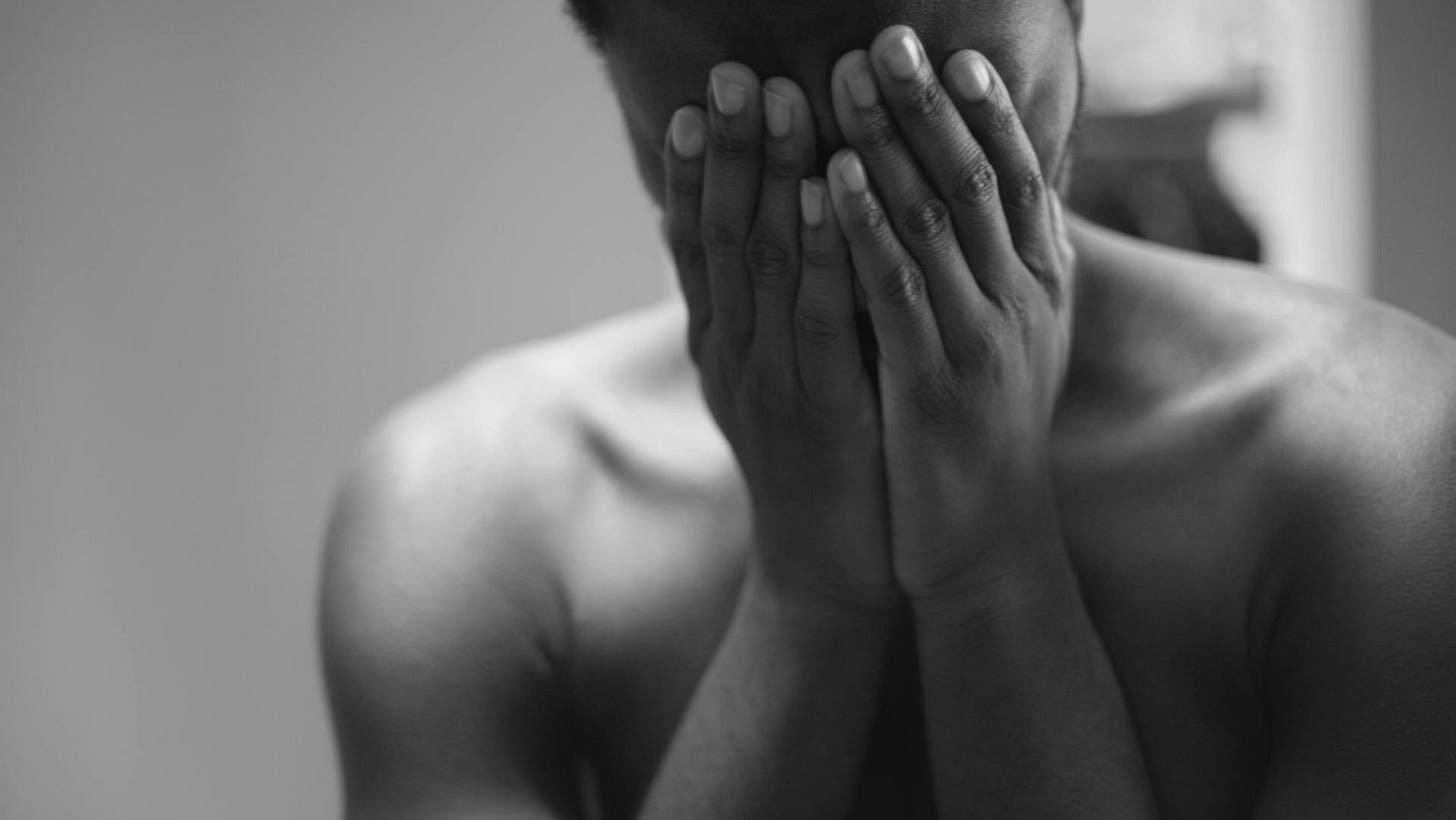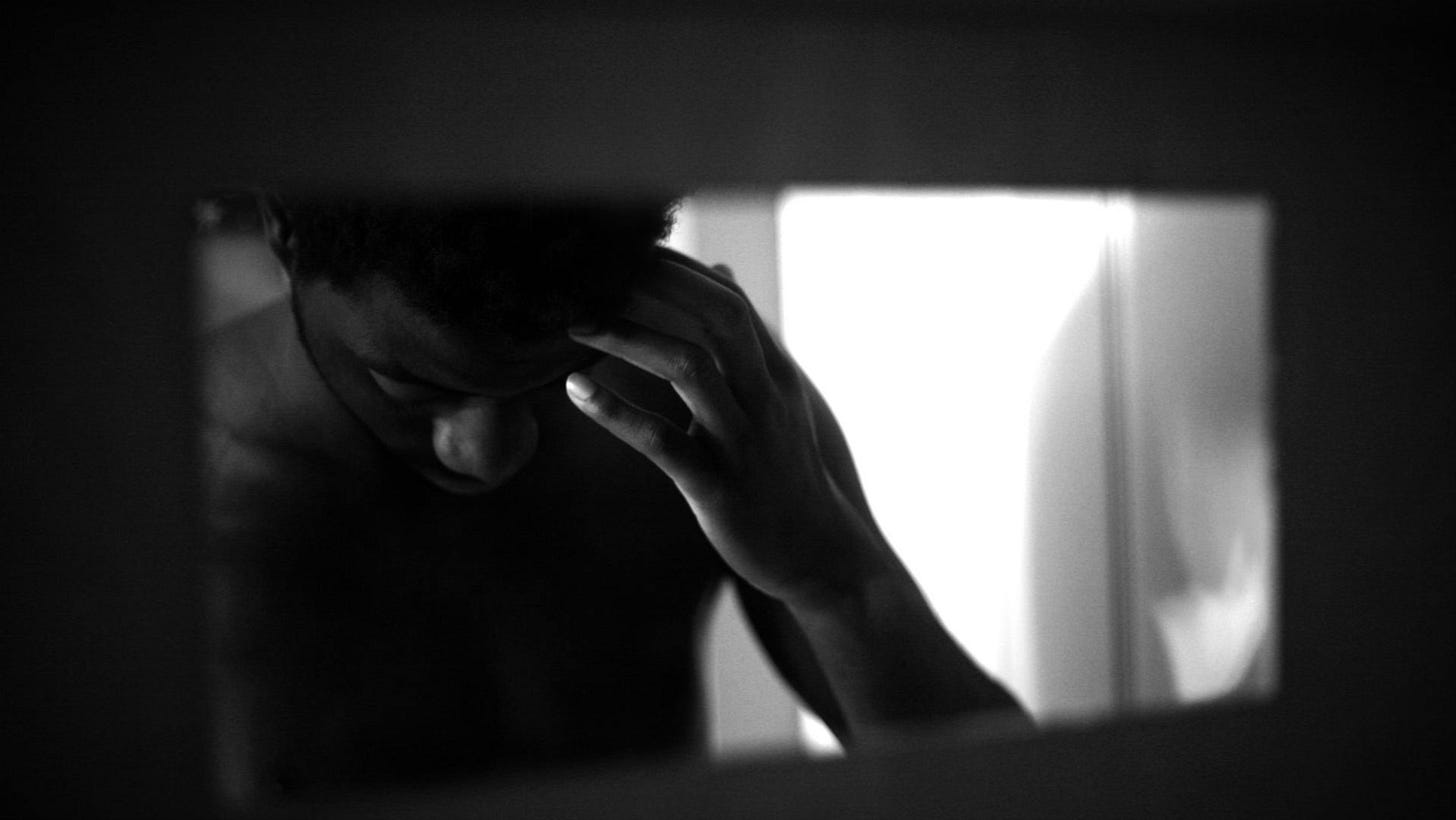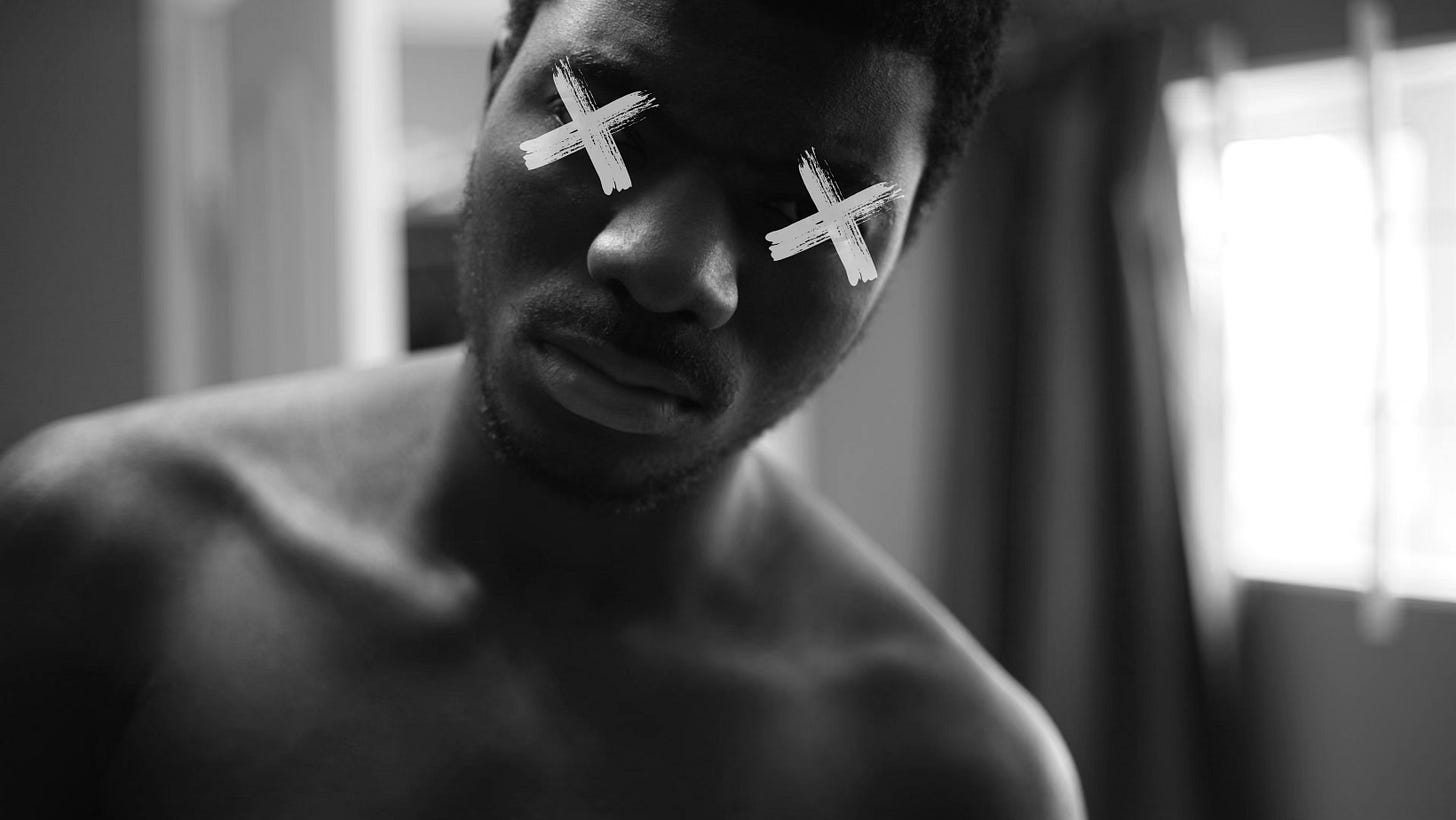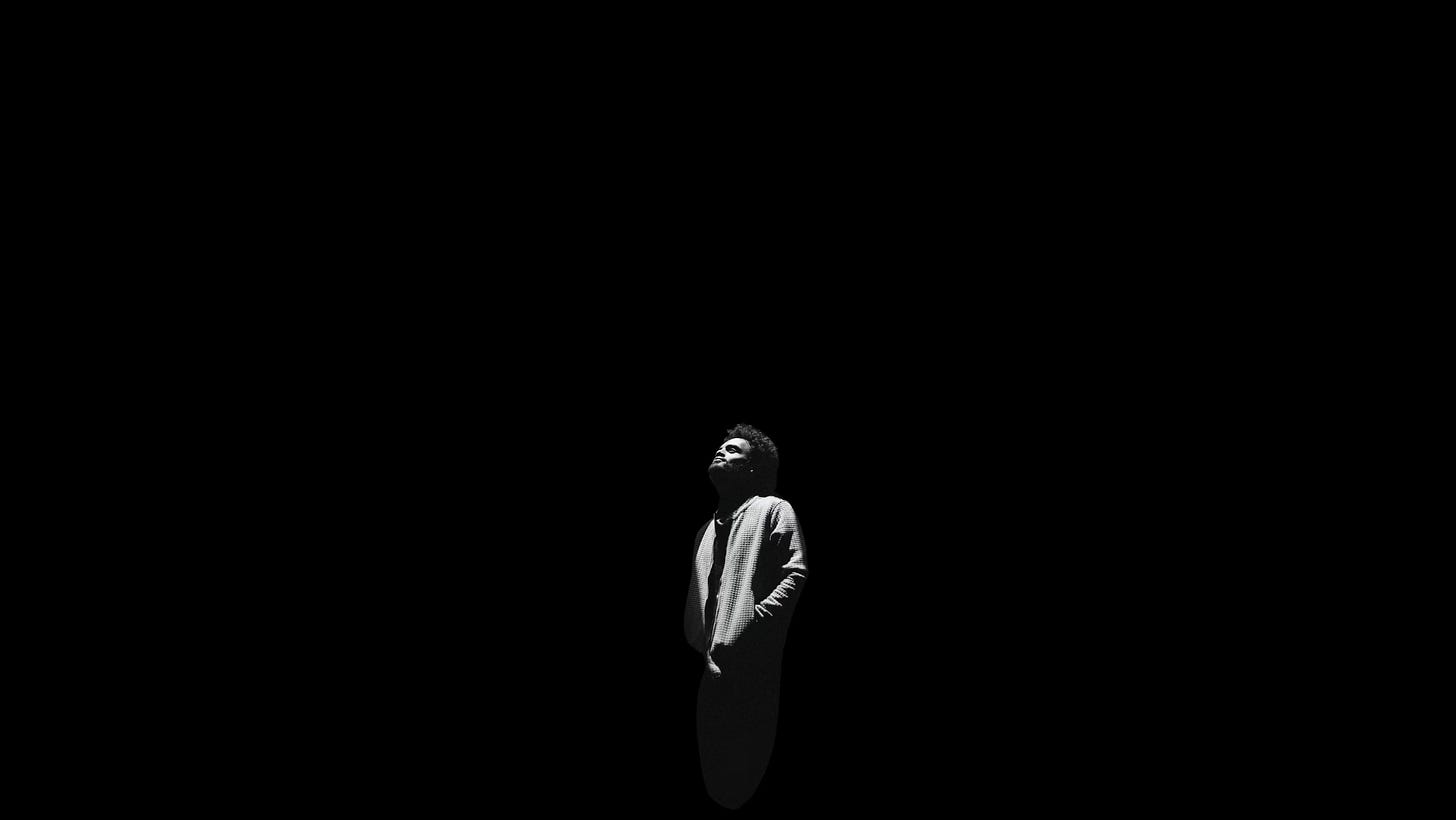I walked into my hotel room, threw my suit jacket onto the desk chair, and fell face first into the bed.
I was at the tail end of a workday that I would go on to describe as a "dream come true" in conversation with other people—but in that moment, it felt like a nightmare. As I sunk deeper into the bed and my heartbeat started to slow back down, I started to question myself…
I had just finished speaking on a panel at a wellness conference hosted by one of the biggest companies in the world.
People came up to me after the panel with kind words and stories to share, but I couldn't receive any of it in full, because I was too busy feeding into the negative thoughts that kept echoing in my head:
Those people didn’t want to hear you speak, they were just happy to get a day off of work.
Those compliments weren't genuine, they came from a place of pity.
You should have spoken more confidently.
You should have spoken more clearly.
You weren't ready for this opportunity.
You didn't deserve this.
These weren't just intrusive thoughts. They didn't come and go.
They took root.
I didn't just consider them, I accepted them as gospel. Despite the applause, despite the kind words, despite the years I spent working to get to this point in my career, I couldn't accept that I deserved this beautiful experience as it was unfolding.
The irony was impossible to miss: I had just spent the last few hours encouraging people to accept themselves in full, but was too prideful and anxious to accept the parts of myself that didn't fit the narrative I had created about myself.
I told other people to love themselves as they were, but me? I told myself that I had to prove to myself that I was worthy of love.
I had to deserve every goal that I was working towards.
I had to be a perfect speaker.
I had to be enough.
They say that firstborn children carry the weight of their parents' expectations.
It's impossible to overstate how deeply I resonate with that statement—my parents raised me with the love, intentionality, and fear that was inevitable for a generation of Black Americans who were painfully aware of the ways in which we all had to be, as they say, "twice as good to get half as far."
I knew that my parents were proud of the man that I had become.
I was already my own man. I had built a life for myself, and I had excelled at that life—but old habits die hard. I couldn’t think of myself as “good enough” without attaching at least three asterisks to the end of the statement. And I wasn’t sure if I would ever be ready to put down the heavy, unyielding, unrelenting burden of unrealistic expectations that I had been carrying.
That night, I must have laid in that hotel bed, with my dress shirt, slacks, and shoes on, for at least an hour. Motionless. Silent. Exhausted. Contemplating my own hypocrisy.
None of us are raised to survive the world that we inherit, because none of our parents are fortune-tellers.
Physically, I was in that hotel room. Mentally speaking, I was in a space that many of us have stumbled into—I was being called to apply the tools, wisdom, and perspective that previous generations had given me, in order to navigate a world that those previous generations could have never imagined.
I was in a season where my worldview was starting to fray at the seams.
I was beginning to question why I clung so tightly, so desperately, to a worldview that was largely inherited—not just from my parents, but also from a dysfunctional world.
I had survived a pandemic, which meant that I was just on the other side of a season where so many of the distractions that limited my capacity to self-evaluate were no longer accessible. There was no long commute, office banter, or impromptu social outing to keep my brain occupied. Instead, I was left with silence, and space, and more silence—and with that silence, came clarity.
My clarity didn't arrive empty-handed—it walked into my life carrying guilt and shame. It forced me to reckon with the hypocrisy that is inseparable from my humanity.
It forced me to see myself.
I didn't love what I saw.
Publicly, I was a model of self-belief, self-love, and self-acceptance. I had built a career rooted in encouraging other people to be kind to themselves.
Privately, I lost sleep fixating over the day when maybe, just maybe, I would finally be good enough—less awkward, more charismatic, less quirky, more charming.
I was on the hamster wheel that I had built for myself, running frantically towards burnout period after burnout period.
I felt perpetually dissatisfied with myself, but I framed my mindset as "growth-oriented" instead of "unwilling to accept who I am" to soften the blow.
As I sat up in my hotel bed and loosened my collar, I knew that it was time—I had no choice but to answer the question that had been forming in the back of my head for quite some time:
Am I a hypocrite?
Yes, I am.
There is no escaping the beautiful contradictions that come with our humanity.
Hypocrisy is defined as "the practice of claiming to have moral standards or beliefs to which one's own behavior does not conform." In many instances, we rightfully infer that hypocrisy is a bad thing.
Hypocrisy can be a byproduct of a deeper issue, self-righteousness—the belief that your ideas and behavior are morally better than those of other people. When you put yourself on a pedestal and look down on the world, you tend to lose humility, self-awareness, and sincerity in the process.
Not all hypocrisy is directly tied to ego—some of us become hypocritical during the moments when our discipline wavers, our judgment falters, or our awareness is lacking. In other words, we become hypocritical because it is human nature to contain contradictions.
It’s easy to forget that the human mind is not one cohesive entity—it is made of many specialized units that don't always work together, which can lead to contradictory beliefs, actions, and interpretations.
In my case, I was in a season where my desire to fully embrace myself, my quirks, and my flaws was coming into conflict with my subconscious belief that I wasn't good enough, and that I never would be.
I wasn’t practicing what I was preaching, and I was not being transparent about that contradiction, because I was scared of rocking the boat as my career was (finally!) starting to take off.
I wouldn't describe that night in my hotel room as life-altering, but I would describe it as revelatory. It was a moment in time when I realized that I had some more work to do.
Don’t we all?
“Everyone hates a hypocrite. And they’re everywhere.”
The paradigm shifted for me when I grew to understand that it is impossible for human beings to live in complete alignment with the values that they believe in.
In the words of philosopher and senior policy adviser Dr. Cressida Gaukroger, "everyone hates a hypocrite. And they're everywhere."
None of us are exempt. None of us can observe, judge, or advise ourselves with the same level of clarity that we can apply to our evaluations of other people.
Does that mean we should hate each other? Does that mean that we should hate ourselves?
Well, we could.
We could cringe at the inconsistencies that are inherent to our humanity. We could judge ourselves, and everyone around us, with the harshness that some might say we deserve. We could convince ourselves that it's easier to be cynical and realistic than to risk falling off of an emotional cliff every time we feel let down or disappointed, whether by somebody else, or ourselves.
I've tried this option before, and while it may have protected me from unexpected disappointment, it didn't bring me joy. It didn't bring me peace. It didn't make my life better, it just made me numb to the beauty of life. I still experienced deep-rooted frustration, and grief, and sadness, but didn't give myself a chance to fully lean into happiness, gratitude, or awe. It demotivated me. It pushed me into multiple seasons of depression and a deep-rooted sense of hopelessness.
I've been there, and I won't go back.
Another option: we could forget that this conversation ever happened. We could ignore the inconsistencies. We could feign ignorance until we don't have to pretend that we're oblivious, anymore. Sometimes, it's easier to not be as aware. Awareness tends to bring baggage with it—things like obligation, responsibility, shame, and guilt. Awareness invites complexity into the equation, and adulting is hard enough without additional layers of nuance.
Maybe it's not that deep.
Maybe we should just care less.
I've tried this option before too, and it is a huge part of what led to me collapsing facedown in that hotel bed. Feigning ignorance isn't the same as never knowing in the first place.
Even if you push what you know out of your mind, it will still influence the way that you experience the world–and when you experience something that reconfirms the beliefs you've been trying to push away, the pain of remembering is sharper than it would have been if you had chosen to accept your difficult truths in the first place.
With that being said, I'd like to invite you to join me in choosing a third option, one that I'm still working to fully embrace. It resides somewhere in between realistic cynicism and carefree ignorance. It requires a level of nuance that can only be understood when you’re willing to wade into the deep end of the pool.
I'd like you to choose self-awareness and self-acceptance. Acknowledge your flaws, and love yourself not in spite of, but inclusive of the parts of yourself that are disruptive, socially unacceptable, and contradictory.
Own your mess.
Choose a self-improvement journey that is rooted in love, not fear. Understand that you will never be perfect, or above reproach, and that every imperfect version of yourself will still deserve to be loved.
Allow this same level of grace and nuance to extend into your worldview. Understand that at some point, every human being you come into contact with will exhibit behavior that is out of alignment with the values, beliefs, or morals that they hold close to their chest. Do your best to love people who are also doing their best.
To be human is to contain contradictions;
We are, gloriously, human.
Come gather, commune, and write (!) with me in real life at my “Pause and Reconnect” retreat, from February 7th - 9th!
It’s at the prestigious Kripalu Center in Stockbridge, Massachusetts.
I’m co-hosting alongside my friend and fellow wellness practitioner Pilin Anice, who is a lead member of Kripalu’s faculty.
Through the rich and healing practices of restorative yoga, pranayama, writing, dance, live drumming, and more, you will:
Connect to joy and freedom through movement.
Tap into creative power and truth through self- expression.
Create personal affirmation and intentions.
Release limiting beliefs and realize the magnificence of your true potential.
Explore your authentic self and embrace your wholeness through the power of connection and community. Return home feeling the positive effects of integration and personal transformation.
Bring your journals, comfy clothes, and favorite pens.
I’m available for events in Q2, Q3, and Q4 of 2025!
I write—but I also deliver keynotes, moderate panels, lead workshops, and perform poetry. I get fits off, too—free of charge. I’d love to learn more about how I can share my perspective, experience, and tools with your organization, community, or audience. Please reach out to partnerships [at] thecreativesummer [dot] com.
(Some of) my 2024 Events:
Poetry Performance at Nike Black Voices Community Dinner (watch)
Affirmations Panel at REC Philly Voter Activation Event
Keynote Speech at Nate Evans’s “Get To Worthy” Summit
Fireside Chat and Affirmation Workshop at Princeton University
Watch a snippet of me reading a piece from my book, Eyes On The Road, below.











Yes you are special to have been this open, honest and vulnerable. Thank you
I honestly do not remember when I subscribed to this newsletter but the joy in my heart, the joy on my face as I read and held dear the words that exposed my soul made me so glad that I'm here. What!!!
This was a very good read. I love that I can relate. I love that you have grace for yourself inclusive of your imperfections and you help people see the benefits of spreading that grace from inside out.
Thank you. Thank you very much for being vulnerable. You're a blessing. In all of your growing and pouring into yourself, I invest a word of prayer into the earth of your soul, that you will always remember that you're a blessing and you have more within that needs to be stirred up.